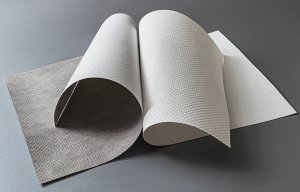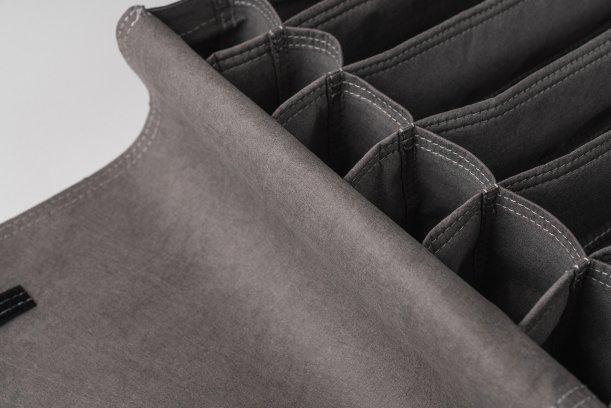
Smoothly does it
Evolon Ultra Force is approximately 50% lighter than PVC-based materials with similar high mechanical strength.

21st July 2025
Innovation in Textiles
|
Germany
Freudenberg Performance Materials will showcase packaging materials combining high performance protection, CO2 emissions reduction and waste prevention at Fachpack 2025 in Nuremberg, Germany, from September 23-25.
Evolon packaging materials provide superior surface protection for a wide range of automotive parts, including moulded plastics and painted elements, making an important contribution to the quality goals of OEMs and tier suppliers by preventing damage to transported parts and lowering rejection rates.
Evolon textiles have a small carbon footprint because their manufacturing process uses low-CO2 energy and the fabrics are lightweight and reusable. In addition, they can comprise up to 85% recycled content.
“By replacing virgin raw materials with recycled content, we’ve been able to cut the carbon footprint of our fabric production by 35%,” says Jean-François Kerhault, director of global sales and marketing at Freudenberg Performance Materials. “We are now actively exploring the possibility of manufacturing Evolon using 100% recycled content to drive CO2 emissions down even further.”
Although Evolon fabrics are lightweight – from 80gsm to 300gsm – they still provide the high mechanical strength required for automotive packaging applications. This conserves raw materials and reduces the weight of transported loads. In particular, the new Evolon Ultra Force is approximately 50% lighter than PVC-based materials with similar high mechanical strength, while containing a minimum 50% recycled content and no PVC.
Evolon materials further play an important role in decreasing waste when it comes to transporting automotive parts. Above all, the high-end materials provide superior surface performance which directly reduces the scrapping of transported parts.
Evolon technical packaging textiles are designed for reusable packaging containers meaning single-use packaging is avoided and the packaging material lasts for the entire production cycle of a car model.

Business intelligence for the fibre, textiles and apparel industries: technologies, innovations, markets, investments, trade policy, sourcing, strategy...
Find out more